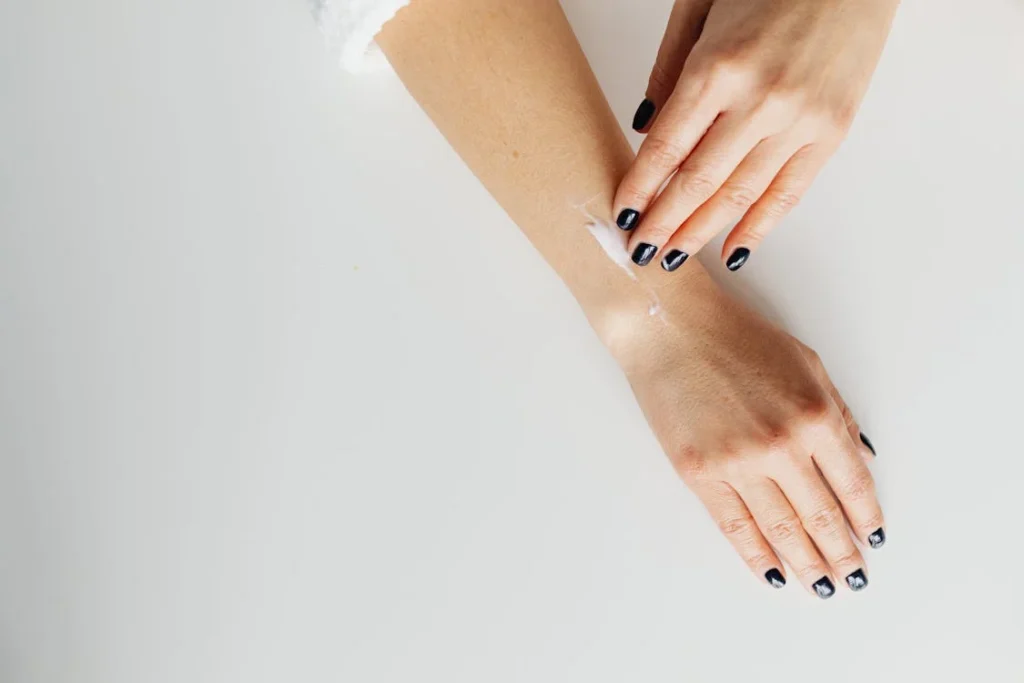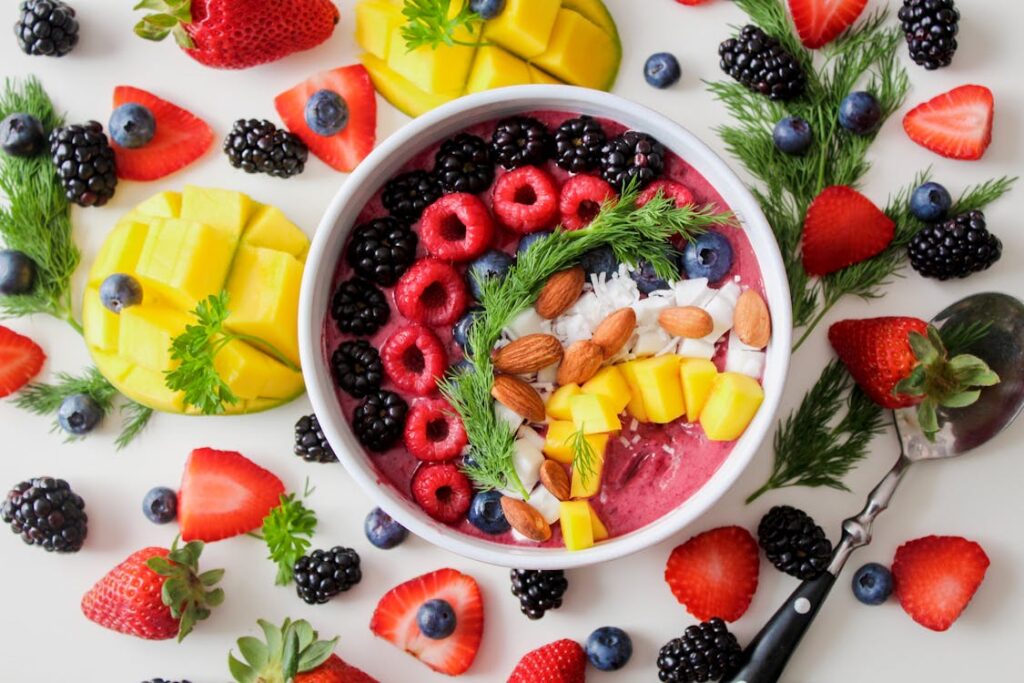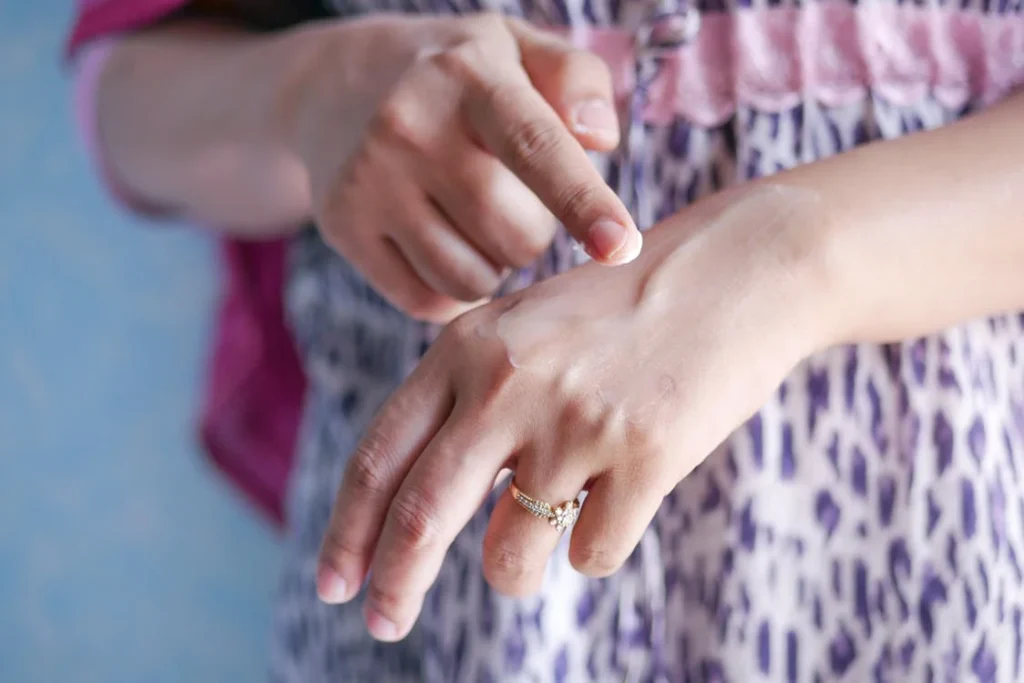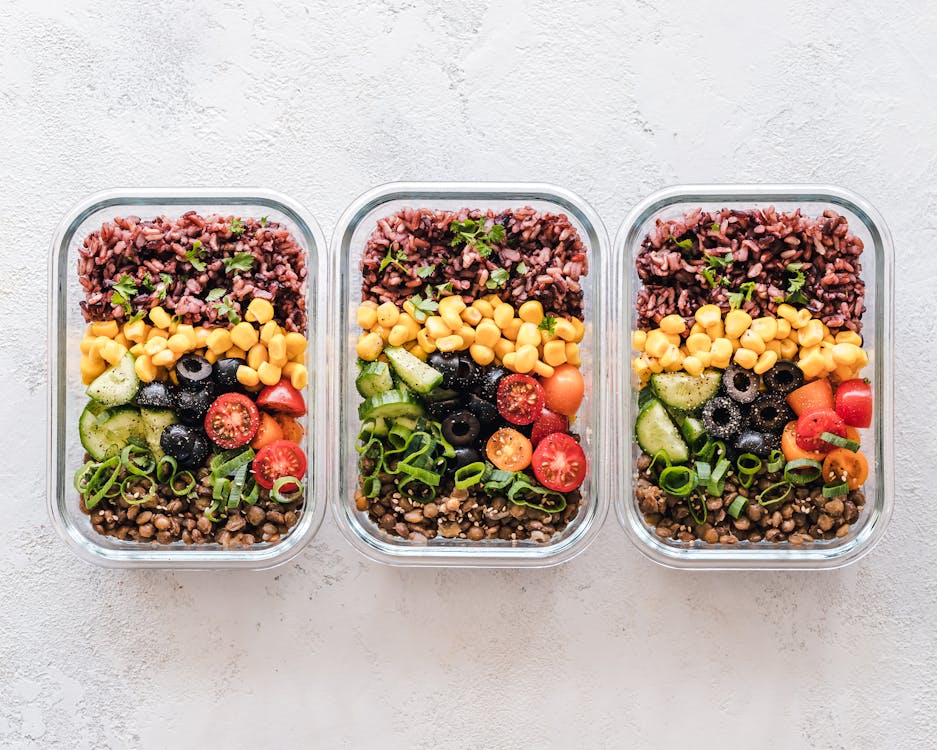Wearing a prosthetic limb is life-changing, offering freedom and mobility. But for many users, skin problems around the prosthetic socket can be a daily struggle. Redness, rashes, sores, and irritation often make wearing a prosthesis uncomfortable. While proper socket fit and hygiene are critical, one factor that often goes unnoticed is nutrition.
What you eat directly impacts your skin’s ability to heal, resist infections, and stay strong under pressure. If your diet lacks the right nutrients, your skin may become fragile, making it more prone to blisters and sores from the constant friction of the prosthetic socket. On the other hand, the right foods can help your skin stay healthy, resilient, and less irritated.

The Connection Between Nutrition and Skin Health
Skin is the body’s first line of defense, and for prosthetic users, it takes on an even greater role. The area where the socket meets the skin undergoes constant pressure, friction, and sweat buildup.
If the skin is weak or inflamed, these factors can lead to discomfort, infections, and even open wounds. What you eat affects the skin’s ability to repair itself, fight bacteria, and stay strong under these demanding conditions.
How Nutrition Strengthens Skin
Your skin is constantly renewing itself. Old skin cells die, and new ones take their place. This process depends on vitamins, minerals, and proteins from the food you eat.
If your body lacks the necessary nutrients, new skin cells may not form properly, leading to dryness, irritation, and slow wound healing. A well-balanced diet helps keep the skin supple, reduces inflammation, and strengthens its protective barrier.
Proteins play a major role in skin health because they are the building blocks of skin tissue. When your body has enough protein, it can repair small abrasions caused by friction with the prosthetic socket.
Collagen, a protein found in the skin, is essential for keeping the skin firm and resilient. Without enough protein in your diet, the skin may become thin and fragile, increasing the risk of breakdown and irritation.
Healthy fats are also critical. They help the skin retain moisture and prevent excessive dryness, which can make the skin more likely to crack under pressure.
Omega-3 fatty acids, found in certain fish and plant-based sources, are particularly helpful in reducing inflammation. If the skin around the prosthetic socket becomes inflamed, it can lead to painful redness and sensitivity.
Consuming enough healthy fats can help keep inflammation in check and promote smoother, more flexible skin.
The Role of Hydration
Water is often overlooked, but it is one of the most important factors in skin health. Dehydrated skin becomes dry, tight, and more prone to irritation.
Sweat buildup inside the prosthetic socket can cause chafing, but when the skin is well-hydrated, it is more elastic and less likely to develop cracks or sores.
Drinking enough water also helps the body flush out toxins, which can contribute to skin irritation. When the body is dehydrated, the skin struggles to maintain its natural protective barrier.
This makes it easier for bacteria to enter and cause infections. By staying properly hydrated, you help your skin maintain its strength and resilience.
The Impact of Blood Circulation on Skin Health
Good circulation is essential for skin repair and overall health. Blood delivers oxygen and nutrients to the skin, helping it heal and stay strong.
Poor circulation, which can be worsened by an unhealthy diet, can lead to slow wound healing and an increased risk of pressure sores around the prosthetic socket.
Nutrients like vitamin C help boost circulation and collagen production. This is especially important for prosthetic users because the skin around the socket is under constant pressure.
When circulation is poor, the skin may become discolored, slow to heal, or more sensitive to friction. Eating foods rich in vitamins and minerals supports better blood flow, which in turn helps maintain healthier skin.

Essential Nutrients for Skin Health Around Prosthetic Sockets
The skin around the prosthetic socket endures constant pressure and friction, making it crucial to provide the right nutrients for strength, elasticity, and healing.
Certain vitamins, minerals, and macronutrients play a direct role in maintaining healthy skin, reducing inflammation, and preventing irritation.
The Power of Protein for Skin Repair
Protein is a key nutrient for rebuilding and maintaining skin tissue. The body constantly repairs microscopic tears caused by friction, and without enough protein, these small wounds can develop into painful sores.
Collagen, a protein found in the skin, helps maintain strength and elasticity. If your diet lacks enough protein, the skin may become thin, weak, and more prone to breakdown.
Lean meats, eggs, fish, dairy products, and plant-based sources such as lentils, chickpeas, and nuts are excellent protein sources. For prosthetic users, consuming enough protein daily is essential for faster skin recovery and resilience.
Healthy Fats for Skin Elasticity
The right kind of fats help the skin stay soft and hydrated. Omega-3 fatty acids, found in fatty fish like salmon, flaxseeds, and walnuts, reduce inflammation and help prevent excessive dryness.
When the skin lacks moisture, it becomes brittle and more prone to cracks, which can lead to discomfort or infections.
On the other hand, consuming too many unhealthy fats, such as processed oils and fried foods, can lead to inflammation and poor skin health. A diet rich in natural, unprocessed fats supports the skin’s ability to withstand friction and pressure from the prosthetic socket.
The Role of Vitamins in Skin Health
Vitamins play a major role in strengthening the skin and ensuring it stays healthy under the pressure of a prosthetic socket.
Vitamin C is essential for collagen production, which helps the skin remain firm and resilient. It also boosts the immune system, helping the body fight off infections that could develop from minor abrasions. Citrus fruits, bell peppers, and leafy greens are great sources of vitamin C.
Vitamin A supports cell regeneration, ensuring that damaged skin heals quickly. It also helps the skin maintain its natural protective barrier. Foods like carrots, sweet potatoes, and spinach are rich in vitamin A.
Vitamin E is known for its ability to protect the skin from damage. It acts as an antioxidant, reducing irritation and supporting skin hydration. Nuts, seeds, and green vegetables provide plenty of vitamin E.
Vitamin D plays an important role in skin repair and immune function. Since many people don’t get enough sunlight exposure, consuming foods like eggs, fish, and fortified dairy can help maintain healthy levels.
Minerals That Support Skin Strength
Zinc is one of the most important minerals for wound healing. It helps the body create new skin cells and repair damaged tissue. People who don’t get enough zinc in their diet may experience slower wound healing and increased irritation.
Foods like pumpkin seeds, beans, and meat provide good amounts of zinc.
Iron is necessary for good circulation. Without enough iron, oxygen struggles to reach skin cells, leading to poor healing and increased sensitivity. Leafy greens, lentils, and red meat help maintain adequate iron levels.
Magnesium helps regulate inflammation and supports skin hydration. A lack of magnesium can make the skin more prone to irritation. Nuts, whole grains, and bananas are good sources of this mineral.

Foods That Can Cause Skin Issues Around Prosthetic Sockets
While eating the right nutrients can strengthen the skin and promote healing, consuming the wrong foods can have the opposite effect.
Certain foods contribute to inflammation, dehydration, and poor skin quality, making the area around the prosthetic socket more vulnerable to irritation, rashes, and infections. Being mindful of what you eat can help prevent unnecessary discomfort and skin problems.
Processed Foods and Skin Inflammation
Highly processed foods, such as packaged snacks, instant noodles, and fast food, are loaded with artificial additives, preservatives, and unhealthy fats.
These ingredients can trigger inflammation in the body, making the skin more sensitive and reactive. Chronic inflammation weakens the skin’s natural barrier, increasing the risk of redness and irritation where the prosthetic socket presses against the body.
Refined carbohydrates, such as white bread, sugary cereals, and pastries, can also contribute to inflammation. These foods cause rapid spikes in blood sugar, leading to increased production of insulin.
High insulin levels have been linked to skin conditions such as acne, rashes, and delayed wound healing. Instead of refined carbs, opt for whole grains like brown rice, quinoa, and whole wheat bread, which provide steady energy and support skin health.
Excess Sugar and Poor Skin Healing
Sugar is one of the biggest culprits in skin damage. It weakens collagen, making the skin less elastic and more prone to developing cracks or sores. Excess sugar also contributes to bacterial growth, increasing the risk of infections around the prosthetic socket.
Sugary drinks like sodas, flavored juices, and energy drinks often contain high-fructose corn syrup, which can lead to systemic inflammation. Instead, drinking fresh fruit-infused water or herbal teas can help keep the skin hydrated without the negative effects of sugar.
Too Much Dairy and Skin Sensitivity
Dairy products can be beneficial in moderation, but for some people, they trigger skin issues. Dairy contains hormones that may increase oil production and lead to clogged pores and skin irritation.
If you notice persistent rashes or breakouts around your prosthetic socket, consider reducing dairy intake and opting for alternatives like almond or oat milk.
Dehydrating Beverages and Skin Dryness
Caffeinated drinks like coffee, black tea, and soda can lead to dehydration if consumed in excess. When the body lacks enough water, the skin becomes dry and fragile, making it more prone to irritation and chafing under the prosthetic socket.
Alcohol also has a dehydrating effect and can slow down the skin’s ability to repair itself.
Instead of relying on coffee or sugary drinks for energy, try increasing your intake of hydrating foods such as cucumbers, oranges, and watermelon. Drinking enough water throughout the day ensures that the skin stays supple and resistant to friction-related damage.
Fried and Greasy Foods Leading to Poor Circulation
Deep-fried foods and meals high in trans fats can negatively affect blood circulation. Poor circulation slows down the delivery of oxygen and nutrients to the skin, delaying healing and increasing sensitivity.
When circulation is compromised, the skin may appear dull and become more vulnerable to pressure sores and blisters.
Switching to heart-healthy fats, such as those found in avocados, olive oil, and nuts, can support better blood flow and overall skin health.
Making simple dietary swaps, like choosing grilled foods over fried options, can have a significant impact on how well the skin adapts to a prosthetic socket.

How to Improve Skin Health Through Better Nutrition
Improving skin health around the prosthetic socket doesn’t require drastic changes. Small, consistent adjustments in diet can make a significant difference in reducing irritation, preventing sores, and enhancing overall comfort.
By focusing on nutrient-rich foods and maintaining proper hydration, the skin can become more resilient and better equipped to handle the demands of wearing a prosthesis.
Eating for Skin Repair and Strength
To support skin repair, it’s essential to eat a diet rich in proteins, vitamins, and minerals. Protein plays a key role in rebuilding damaged skin, so making sure to include high-quality protein sources in meals can speed up the healing process.
Foods like eggs, lean meats, fish, legumes, and dairy products provide the amino acids needed for cell regeneration. For those following a plant-based diet, beans, tofu, nuts, and quinoa offer excellent protein alternatives.
Collagen production is vital for maintaining skin elasticity and strength. Eating foods rich in vitamin C, such as oranges, bell peppers, and strawberries, helps the body produce more collagen.
This makes the skin more resistant to friction and reduces the chances of developing blisters or pressure sores. Additionally, vitamin A, found in carrots, spinach, and sweet potatoes, promotes faster skin cell turnover, ensuring that damaged skin is replaced with new, healthy tissue.
Hydration and Skin Elasticity
Staying hydrated is one of the simplest ways to maintain healthy skin. Water helps flush out toxins, keep skin cells plump, and prevent excessive dryness.
Dehydrated skin is more likely to crack or become irritated under the constant pressure of a prosthetic socket. Drinking at least eight glasses of water a day supports the skin’s natural protective barrier.
For those who struggle to drink plain water, adding natural flavor with slices of lemon, cucumber, or mint can make hydration more enjoyable.
Eating water-rich foods, such as watermelon, oranges, and cucumbers, also helps keep the body hydrated. Herbal teas without caffeine can also contribute to daily water intake without causing dehydration.
Reducing Inflammation with Anti-Inflammatory Foods
Inflammation is one of the leading causes of skin irritation around prosthetic sockets. Eating more anti-inflammatory foods can help reduce redness and prevent skin flare-ups.
Omega-3 fatty acids, found in fatty fish like salmon, chia seeds, and flaxseeds, are known for their ability to reduce inflammation and promote skin healing.
Green leafy vegetables, such as kale, spinach, and broccoli, contain powerful antioxidants that help the skin recover from minor abrasions.
Turmeric, a well-known anti-inflammatory spice, can be easily added to soups, curries, and teas to further support skin health. Ginger also offers similar benefits and can be included in meals or consumed as tea to help calm inflammation in the body.
Balancing Blood Sugar Levels for Better Skin Health
Unstable blood sugar levels can negatively affect skin health, making it more prone to breakouts and delayed healing. Consuming excessive refined carbohydrates and sugar leads to spikes in insulin, which can trigger inflammation and weaken the skin’s protective barrier.
Switching to complex carbohydrates like whole grains, legumes, and fiber-rich vegetables helps stabilize blood sugar and provides long-lasting energy.
Instead of reaching for sugary snacks, choosing fresh fruits, nuts, or yogurt can satisfy cravings while also providing essential nutrients for skin repair. Cutting down on processed foods and sugary drinks makes a noticeable difference in skin texture and overall resilience.

Practical Meal Plan for Healthier Skin Around Prosthetic Sockets
Making the right food choices doesn’t have to be complicated. A balanced meal plan that includes skin-nourishing nutrients can significantly improve comfort and resilience around the prosthetic socket.
Instead of focusing on restrictions, the goal should be to incorporate more healing foods into daily meals.
A Skin-Boosting Breakfast
Starting the day with a nutrient-rich breakfast helps provide the body with essential vitamins and proteins needed for skin repair. A great option is a bowl of oatmeal topped with flaxseeds, walnuts, and fresh berries.
The fiber in oatmeal helps stabilize blood sugar, while the omega-3s in flaxseeds and walnuts reduce inflammation. Berries provide vitamin C to boost collagen production, keeping the skin firm and resistant to irritation.
Another good breakfast choice is a vegetable omelet with spinach, bell peppers, and tomatoes, paired with whole-grain toast.
The eggs provide high-quality protein, while the vegetables offer a range of vitamins and antioxidants to strengthen the skin’s protective barrier. Adding a glass of fresh orange juice or lemon water further supports hydration and vitamin C intake.
Mid-Morning Snacks for Sustained Energy
Healthy snacks can prevent energy crashes and maintain blood sugar stability, which contributes to better skin health. A handful of almonds or sunflower seeds supplies vitamin E, which protects the skin from damage.
Greek yogurt with honey and chopped nuts is another great option, offering probiotics that support gut health, which is directly linked to reduced inflammation.
For those who prefer something refreshing, a smoothie made with bananas, spinach, and chia seeds provides hydration, potassium, and omega-3s, all of which help maintain skin elasticity.
Keeping snacks simple but nutrient-dense helps the body sustain energy while promoting skin resilience.
A Nutrient-Packed Lunch
Lunch should include a balance of lean protein, healthy fats, and fiber-rich vegetables. A grilled salmon salad with mixed greens, avocado, and olive oil dressing is an excellent choice.
The omega-3s in salmon reduce inflammation, while the healthy fats in avocado and olive oil keep the skin moisturized from the inside out.
For a vegetarian option, a chickpea and quinoa salad with roasted bell peppers, cucumbers, and lemon dressing offers a mix of protein, fiber, and antioxidants.
Quinoa is a complete protein, meaning it contains all essential amino acids needed for skin repair. The vegetables add hydration and vital vitamins to promote faster skin healing.
A side of whole-grain chapati or brown rice ensures sustained energy without causing blood sugar spikes. Drinking plenty of water with lunch further helps keep the skin hydrated and flush out toxins that could contribute to irritation.
Evening Snacks to Prevent Late-Night Cravings
Skipping meals or going long hours without eating can lead to cravings for processed or sugary foods. Instead, a light snack in the evening can help stabilize hunger while supporting skin health.
A small bowl of hummus with carrot and cucumber sticks provides hydration and a good source of plant-based protein.
Another great option is a handful of mixed nuts with a piece of dark chocolate. Nuts provide essential fatty acids and zinc for skin repair, while dark chocolate (in moderation) contains antioxidants that protect against skin damage.
Herbal tea with turmeric and ginger can further help calm inflammation and promote digestion.
A Skin-Healing Dinner
Dinner should be light yet nourishing to support overnight skin regeneration. A grilled chicken or tofu stir-fry with colorful vegetables and brown rice provides a perfect balance of protein, vitamins, and complex carbohydrates.
Adding garlic and ginger enhances the meal’s anti-inflammatory properties while boosting immunity.
For those who prefer soups, a lentil or vegetable soup with a side of whole-grain bread offers warmth and nutrition. Lentils are rich in iron and zinc, essential for good circulation and wound healing.
Drinking a glass of warm water with lemon before bed helps detoxify the body and maintain hydration.

Lifestyle Habits That Support Skin Health Around Prosthetic Sockets
While proper nutrition is key to maintaining healthy skin, other lifestyle factors also play an important role. Combining a balanced diet with good hygiene, exercise, and stress management creates the best conditions for strong, resilient skin.
When these habits are followed consistently, they help reduce irritation, prevent pressure sores, and improve overall comfort while wearing a prosthesis.
Maintaining Proper Hygiene for Skin Protection
Keeping the skin clean and dry is essential, especially in areas where the prosthetic socket comes into contact with the body. Sweat, bacteria, and friction can lead to rashes, infections, and skin breakdown.
Washing the skin daily with a mild, fragrance-free cleanser helps remove sweat and bacteria without stripping away natural oils. It’s important to avoid harsh soaps, as they can cause dryness and increase sensitivity.
After cleansing, patting the skin dry rather than rubbing helps prevent unnecessary irritation. Applying a lightweight, non-greasy moisturizer can keep the skin hydrated and reduce friction.
If the skin becomes irritated, using soothing products with aloe vera or chamomile can help calm redness and discomfort.
Wearing a clean prosthetic liner or socket sleeve is also essential for maintaining skin health. Bacteria and sweat buildup inside the socket can lead to infections, so regular washing and proper drying of liners can prevent these issues.
The Importance of Regular Movement and Circulation
Good circulation is necessary for delivering oxygen and nutrients to the skin. Sitting or standing for long periods without movement can slow down blood flow, leading to pressure sores and delayed wound healing.
Engaging in gentle exercises, such as stretching, walking, or yoga, helps improve circulation and keep the skin healthy.
For individuals using a lower-limb prosthesis, shifting weight periodically while standing and avoiding prolonged pressure on one spot can help reduce the risk of skin damage. If possible, elevating the limb occasionally can also promote better blood flow and reduce swelling.
Massage is another way to boost circulation. Gently massaging the skin around the prosthetic socket for a few minutes each day can increase blood flow, reduce stiffness, and help the skin recover from minor abrasions.
Using a natural oil like coconut or olive oil can make the massage more soothing and provide additional skin hydration.
Managing Stress for Better Skin Health
Stress affects the body in many ways, and skin health is no exception. When stress levels are high, the body produces hormones that can trigger inflammation and make the skin more prone to irritation and breakouts.
Stress can also weaken the immune system, making it harder for the skin to heal from minor cuts or blisters.
Practicing relaxation techniques such as deep breathing, meditation, or listening to calming music can help lower stress levels. Engaging in activities like reading, gardening, or spending time with loved ones can also provide mental relaxation and improve overall well-being.
Getting enough sleep is another important factor in managing stress and supporting skin health. During sleep, the body repairs damaged tissues, including the skin.
Aiming for at least seven to eight hours of quality sleep each night ensures that the skin gets the necessary time to regenerate and recover from daily friction with the prosthetic socket.
Avoiding Harmful Habits That Can Damage Skin
Certain habits can negatively impact skin health and increase the likelihood of irritation around the prosthetic socket. Smoking, for example, reduces blood circulation, making it harder for the skin to receive essential nutrients.
It also weakens collagen, leading to thinner, more fragile skin that is more susceptible to sores and blisters.
Excessive alcohol consumption can dehydrate the skin and impair the body’s ability to heal wounds. Limiting alcohol intake and choosing hydrating beverages instead helps keep the skin in better condition.
Wearing poorly fitted clothing around the prosthetic socket can also contribute to friction and discomfort. Choosing breathable, moisture-wicking fabrics helps reduce sweat buildup and keeps the skin dry.
If irritation occurs frequently, consulting a prosthetist to adjust the socket fit can make a significant difference in overall comfort.
The Role of Sun Protection in Skin Health
Exposure to direct sunlight can cause sunburn and dryness, making the skin more vulnerable to irritation. If the skin around the prosthetic socket is exposed, applying sunscreen with an SPF of at least 30 can help protect against UV damage.
Wearing lightweight, long-sleeved clothing and a hat when spending time outdoors can further prevent sun-related skin issues.
Conclusion
Skin health plays a crucial role in the comfort and longevity of prosthetic use. The right nutrition strengthens the skin, speeds up healing, and reduces irritation, while poor dietary choices can lead to inflammation, dryness, and infections. A diet rich in protein, healthy fats, vitamins, and minerals helps the skin stay strong and resilient under the pressure of a prosthetic socket. Staying hydrated, reducing sugar intake, and avoiding processed foods further support skin health.
Beyond diet, maintaining proper hygiene, improving circulation, managing stress, and avoiding harmful habits like smoking or excessive alcohol consumption contribute to healthier skin. Regular movement, massage, and sun protection also help prevent skin issues that could interfere with prosthetic use.
By making small but consistent changes, prosthetic users can reduce discomfort, prevent skin breakdown, and enjoy greater mobility and independence. If skin irritation persists, consulting a healthcare provider or prosthetist for personalized advice can help ensure a better experience. Taking care of your skin isn’t just about comfort—it’s about protecting your mobility and overall well-being.



